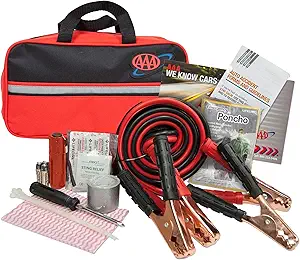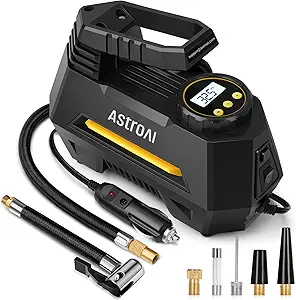Does Full Coverage Car Insurance Cover Towing? What You Need to Know
You’re driving along when you hear a sudden clunk, see smoke, or feel a tire go flat. You pull over to the shoulder, stranded. Your first thought is, “I have full coverage, so I’m all set for a tow, right?” It’s a logical assumption that millions of drivers make, but the answer is more nuanced than you might think. The term “full coverage” itself is one of the most misunderstood in the insurance world. This guide will break down what full coverage actually is, when it might cover towing, and what separate, optional coverage is the real hero of any roadside breakdown.
The Short Answer: No, Not by Default
“Full coverage” car insurance is an informal term that simply refers to a policy that includes both **Collision** and **Comprehensive** coverage, in addition to your state’s required liability insurance. By itself, this package **does not** automatically include coverage for towing due to a mechanical breakdown. Towing and other roadside services are typically covered under a separate, optional add-on called **Roadside Assistance** or “Towing and Labor” coverage.
Deconstructing “Full Coverage”: What Are You Actually Paying For?
Before we can understand what’s *not* included, we have to be clear on what “full coverage” *is*. It’s not a single policy but a combination of three key coverage types:
- Liability Coverage: This is required by law in nearly every state. It pays for injuries and property damage you cause to *other people* in an at-fault accident. It does nothing for your own car.
- Collision Coverage: This pays to repair or replace your own car if it’s damaged in a collision with another vehicle or object (like a tree or a guardrail), regardless of who is at fault.
- Comprehensive Coverage: This pays to repair or replace your car if it’s damaged by something *other than a collision*. This includes theft, vandalism, fire, hail, or hitting an animal. As an example, this is the coverage that applies when you’re dealing with the complex situation of what happens if a stolen car is found after an insurance payout.
When you put these three together, you have a robust policy that protects you from liability and covers damage to your own vehicle. However, notice that none of these core components mention a flat tire, a dead battery, or running out of gas.
“Policyholders should view their insurance in terms of specific coverages rather than broad labels. ‘Full coverage’ provides excellent protection against collision and unforeseen events, but roadside assistance is a distinct service designed for vehicle operability, not damage repair.”
When DOES Full Coverage Pay for a Tow? The Key Exception
There is one major scenario where your Collision or Comprehensive coverage will absolutely pay for a tow: **when the tow is a direct result of a covered claim.**
For example, if you are in a car accident that damages your vehicle so badly it cannot be driven, the cost of towing your car from the accident scene to a repair shop is considered part of the overall claim. Your Collision coverage will pay for the tow as a necessary step in the repair process. Similarly, if a tree falls on your car and it needs to be towed to a body shop, your Comprehensive coverage would handle it. The entire process of how to file a claim with your car insurance provider will include these associated costs.
The critical difference is that the tow is part of a larger, covered loss. It is not for a simple mechanical breakdown.
The Real Solution: Roadside Assistance Coverage
For all the other times you might be stranded—a dead battery, flat tire, empty gas tank, locked keys, or engine failure—you need **Roadside Assistance** coverage. As of late 2025, this remains an inexpensive but invaluable optional add-on to your auto policy.
What Does Roadside Assistance Typically Include?
- Towing: Towing your vehicle to the nearest qualified repair shop. Policies usually have a mileage limit (e.g., up to 15, 50, or 100 miles).
- Battery Jump-Start: Service to jump-start a dead battery.
- Flat Tire Change: Service to change a flat tire with your vehicle’s spare.
- Fuel Delivery: Delivery of a few gallons of gasoline if you run out of fuel.
- Lockout Service: Assistance if you’ve locked your keys in your car.
- Winching/Extrication: Pulling your car out if it’s stuck in mud, snow, or a ditch.
| Scenario | Covered by “Full Coverage” (Collision/Comp)? | Covered by Roadside Assistance Add-On? |
|---|---|---|
| Car is not drivable after a multi-car accident. | YES (Part of the collision claim) | YES (Could also be used) |
| Engine overheats and breaks down on the highway. | NO (This is a mechanical failure) | YES |
| You get a flat tire. | NO | YES |
| Your battery is dead in your driveway. | NO | YES |
| You hit a deer and your car needs a tow. | YES (Part of the comprehensive claim) | YES (Could also be used) |

Featured Product: Be Your Own First Responder
While waiting for a tow truck, your safety is paramount. The Lifeline AAA Premium Road Kit is a 42-piece emergency kit that includes jumper cables, a flashlight, first-aid supplies, reflective triangles, and basic tools. Having this in your trunk ensures you’re prepared to handle minor issues or safely wait for professional help to arrive.
View on AmazonInsurance Roadside Assistance vs. Standalone Services (like AAA)
Another key decision is whether to get roadside assistance through your car insurance policy or from a dedicated motor club like AAA. Both have pros and cons.
Roadside Assistance via Your Insurer
- Pros: Extremely convenient to manage (one bill), very inexpensive (often just a few dollars per month), and tied directly to your policy.
- Cons: Using the service may count as a “claim” in your insurance history, which, while not a major at-fault accident, could potentially impact your rates at renewal if used frequently. Coverage limits (like towing distance) may be lower than motor club options.
Standalone Motor Clubs (AAA, etc.)
- Pros: The coverage follows the *person*, not the *car*. This means you’re covered whether you’re driving your own car, a rental, or are a passenger in a friend’s car. They often offer higher towing mileage limits and additional perks like travel discounts and trip planning. Using the service has zero impact on your car insurance rates.
- Cons: Significantly more expensive than an insurance add-on. Requires a separate membership and bill to manage.
For many, especially parents who want to ensure their children are covered in any situation, a motor club membership can be worth the extra cost. The peace of mind it provides for parents of new drivers makes it a great supplement to standard car insurance for teens.

Featured Product: Solve a Common Problem Yourself
A slow leak or low tire pressure is a common reason for a roadside stop. Instead of waiting for help, you can often solve the problem yourself with a portable tire inflator. The AstroAI Air Compressor plugs into your car’s 12V outlet and can inflate a tire in minutes. It’s an empowering tool that can turn a major delay into a minor inconvenience.
View on AmazonFrequently Asked Questions (FAQ)
1. How do I add Roadside Assistance to my policy?
You can usually add it with a quick phone call to your agent or by logging into your insurance company’s online portal or mobile app. It’s a simple change that typically takes effect immediately or at midnight on the day you add it.
2. If I don’t have towing coverage, can I pay for a tow and get reimbursed?
Only if the tow was part of a covered collision or comprehensive claim. If your car breaks down and you don’t have the specific Roadside Assistance add-on, you will have to pay for the tow out-of-pocket, and your insurer will not reimburse you.
3. Does using roadside assistance raise my insurance rates?
It’s unlikely that a single use will have a noticeable impact. However, some insurers may see multiple roadside claims in a short period as an indicator of a poorly maintained vehicle or increased risk, which could be a minor factor at policy renewal. This is in contrast to an at-fault accident, which will almost certainly raise your rates.
4. Do I need Roadside Assistance if I have a new car under warranty?
Most new car warranties include a complimentary roadside assistance program for the first few years. It’s a great perk, but you should read the terms carefully. It may have stricter limits than your insurance option. Once you buy a car, it’s a good idea to have all your coverages sorted, which is a different process than finding out if do car dealerships offer temporary insurance.
Disclaimer: This article provides general information about standard insurance practices in the U.S. as of August 28, 2025 and does not constitute financial advice. Policy terms, coverage options, and state regulations can vary. It is essential to review your own insurance policy documents and speak directly with your insurance agent or company to understand your specific coverages. The products mentioned may contain affiliate links.